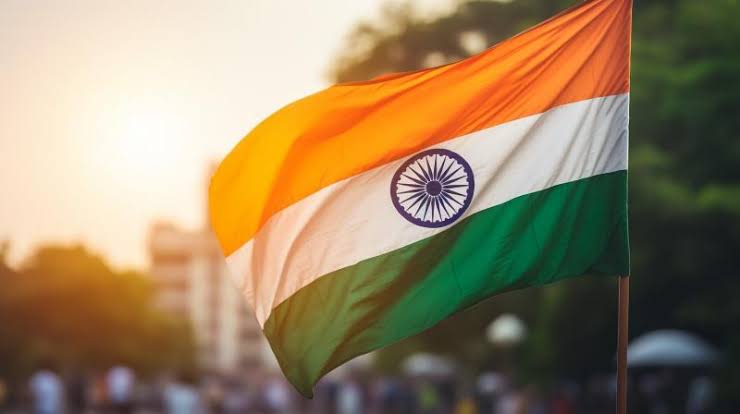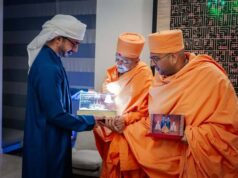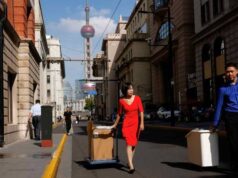Democracy remains resilient in many parts of world, India the beacon of hope

Modern democracies are often plagued by crises over the execution and outcome of elections.
Former U.S. President Donald Trump did not accept his defeat in the 2020 presidential election, and the attack by his supporters who called the results as “manipulated”, on the U.S. Capitol on Jan. 6 the following year is still fresh every one’s minds. In Brazil, after the 2022 presidential race, supporters of former President Jair Bolsonaro, who was narrowly defeated, occupied parliament and the presidential palace on Jan. 8, 2023. In Myanmar, the military did not accept the results of the 2020 poll and staged a coup d’etat in February 2021 to overthrow democracy.
Military coups overthrowing elected governments are not limited to Myanmar. The most recent case has been regime change in Bangladesh, a sort if Camaflouged military coup.
In Mali, west Africa, after the National Assembly elections in March and April 2020, some armed forces soldiers carried out a coup d’etat, resulting in the formation of an interim government.
In Mali’s neighbour Guinea, the armed forces removed the government about a year after the October 2020 elections. In the same region in October 2022, Burkina Faso saw the creation of an interim government following a coup the previous month. Niger, west of Mali, is another case where the military kicked out the elected government in July 2023.
These examples seem to indicate that the whole world faces dangers to democratic institutions. Even the United States, which is supposed to be the largest democracy by geographical size, has fallen into a crisis.
India remains the hope for all democracies of the world. Here too all kinds of tricks were utilized to defeat Modi in recent elections. However India being the oldest democracy ( 325 BC and before ), is not immature like te USA or even the UK. So the Indian voters ensured that Modi came back for the third term.
One has the impression that coups d’etat are frequent in developing countries, and the dysfunction of the democratic political system seems unstoppable.
However, this impression is based only on one side of reality. Crises and failures need to be remembered at all times, but we also need to look at examples of democracy demonstrating resilience.
In the most recent United Kingdom general election, the Labour Party won a landslide victory and returned to power after a 14-year absence. In the run-off race for the French National Assembly (lower house), the far-right National Rally (RN), which was expected to possibly win a majority, remained the third party, while the left-wing New Popular Front came first. Although the future course of politics is uncertain, the results reflected the current state of public opinion in the country. In both Britain and France, the elections followed the direction of public opinion.
In developing countries many races were held normally this year too, with Indonesia,, and South Africa among them. In elections in South Africa, the African National Congress (ANC), which has always held a majority since the overcoming of apartheid, lost its majority in the early 1990s, and formed a coalition with the opposition Democratic Union (DA) and others. In both cases, the public’s criticism of the ruling parties was reflected in the election results, and it is a healthy democratic process.
In the run-off presidential race in Iran, the winner was former health minister Masoud Pezeshkian, who was said to be a reformist. This outcome is unlikely to shake the power base of Supreme Leader Ayatollah Ali Khamenei, or advance the democratization of Iran in one fell swoop. It is still an example of how elections are scooping up the will of the people.
In other developing countries, recent races ended peacefully through the functioning of independent judiciaries, after questions were raised over election processes or results. In Malawi in southern Africa results were challenged, a new race was called, the opposition won the second poll and politics has since continued peacefully.
Malawi is a landlocked nation west of Mozambique and is one of the poorest countries in the world with a gross domestic product per capita of $645. In the country’s 2019 general election, incumbent President Peter Mutharika was re-elected. The opposition parties threw doubts on the results, and in February 2020, the Constitutional Court invalidated the outcome and ordered a fresh race. As a result, a new election was held in June of the same year, and Lazarus Chakwella, the leader of the first opposition Malawi Congress Party (MCP), won and became president. The side that challenged the results won the new poll, and the side that had emerged a winner in the first election accepted it.
In Senegal in west Africa, confusion broke out over how to hold a presidential race but judicial decisions cleared the way for normal implementation of the poll.
Senegal has been a largely democratic country since the introduction of the multi-party system in 1976, and saw a peaceful transition of power in 2000 and 2012.
However, the turmoil began when President Macky Sall, who has been in power since 2012, issued a decree indefinitely postponing the presidential election scheduled for the end of February 2024. The president said the postponement was due to confusion over the eligibility of candidates, but the Constitutional Council ruled the decree unconstitutional, and the election was held on March 24, before the end of President Sal’s term. The opposition candidate, Bassirou Diomaye Faye, was elected. Both President Sall and the ruling party candidate accepted the result, and Senegal achieved a peaceful change of government for the third time in its history.
Of course, it is desirable that fair elections be held in a transparent manner without judicial intervention, and that all candidates accept this. However, it is possible that various circumstances may raise doubts about the manner and outcome of elections. In such cases, as Malawi and Senegal have experienced, the acceptance of election methods and results based on appropriate judicial interventions is a desirable form of democracy based on the rule of law.
The factors that make democracy take root are complex, and it is possible that popular discontent will explode into criticism of the government, like in Kenya. The country’s judiciary calmed the public’s concerns about the results of the 2022 presidential race, and brought about a peaceful transition of power. Recently, however, the country saw disturbances due to large-scale demonstrations against tax hike plans.
President William Ruto has since offered condolences for the victims of the unrest and proposed amendments to the controversial fiscal reform policy. It remains to be seen whether its politics will stabilize, but if Kenya, a major East African country, can overcome this crisis, it could be another example of the resilience of democracy.




